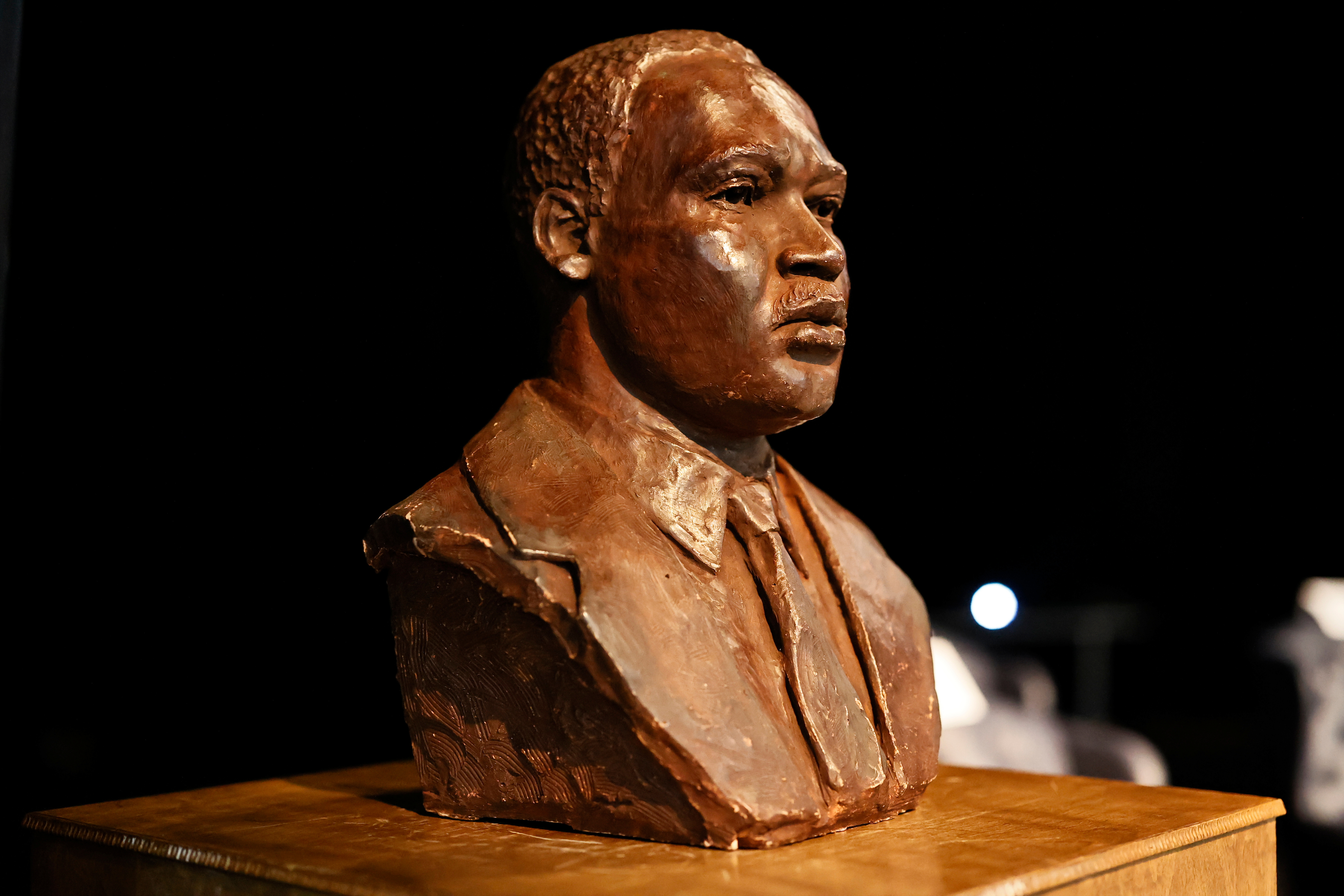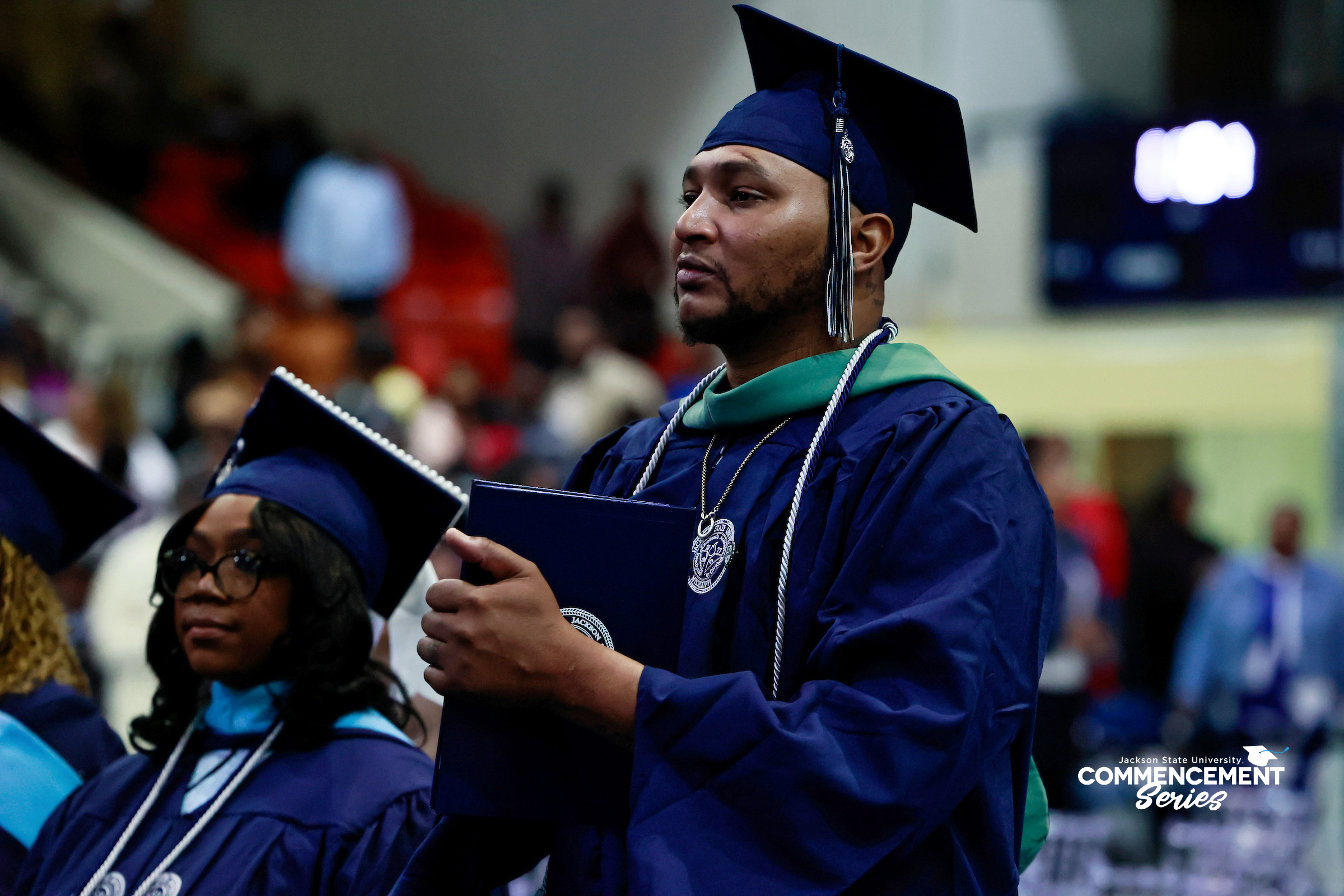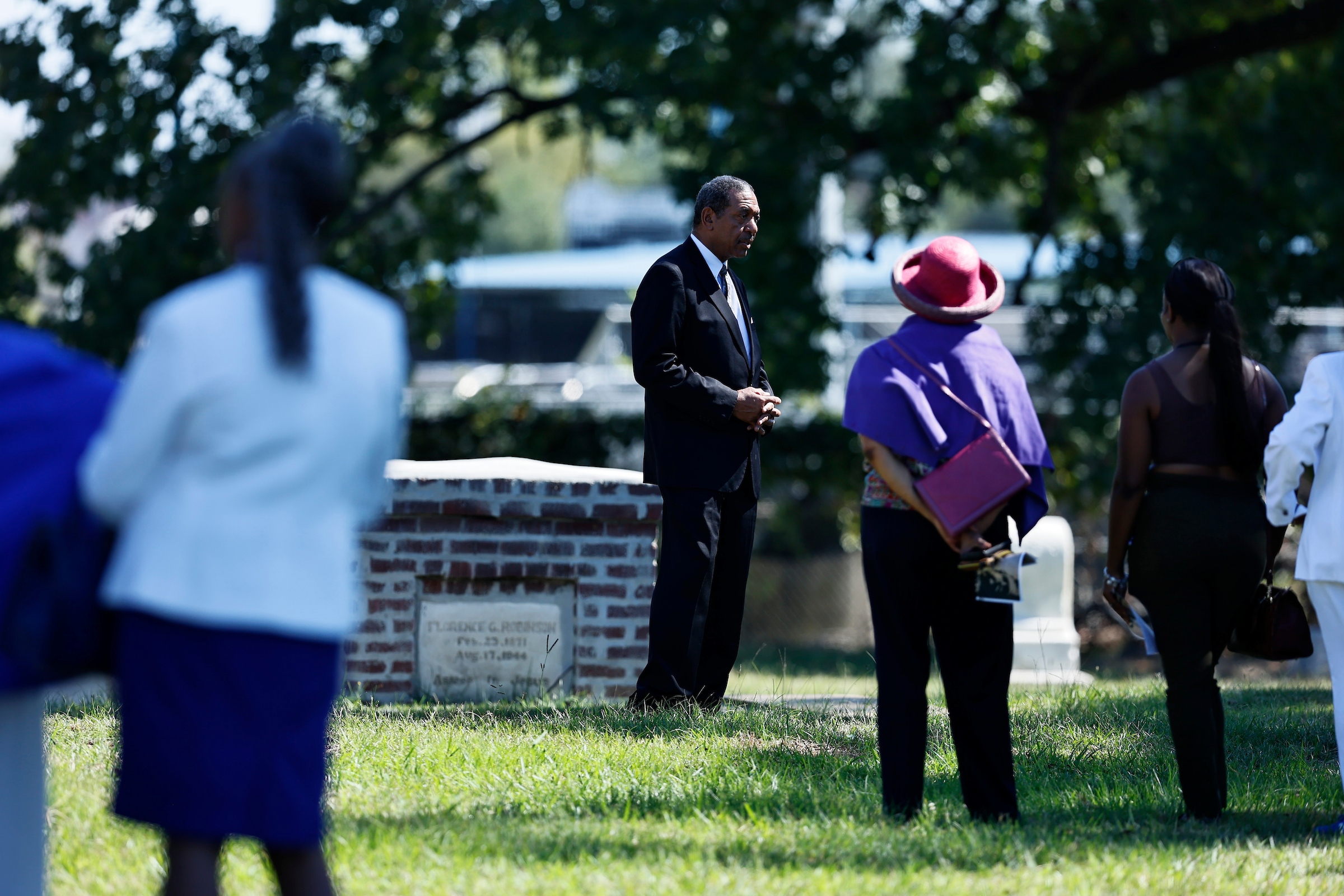(JACKSON, Miss.) – Jackson State University freshman Markeisha Robinson became the first of 900 students to receive an iPad this week as part of the university’s new iPad initiative.
Through a partnership with the Mississippi e-Center Foundation, all first-time, full-time JSU freshmen will receive an iPad to assist in their learning. The program, called the iPad Technology Advantage Scholarship Initiative, will not only integrate the device into the curriculum, but will track students’ learning through an intensive two-year study.

“I feel this iPad will really enhance my education at Jackson State,” said Robinson, a communicative disorders major from Greenville, Miss. “This will help me go on to do great things. It’s a great investment in students.”
Students from JSU’s freshman foundation course University Success began lining up at the JSU Student Center Tuesday, Sept. 4, to pick up their iPads. Led by their instructors, each class moved from station to station where they registered for insurance, were handed an iPad equipped with a Bluetooth keyboard and protective cover, and took part in mini workshops about iPad policies, set-up and use. Each iPad comes loaded with a bundle of student apps and Airwatch Safeware, which helps recover any lost or stolen devices.
[youtube=https://www.youtube.com/watch?v=BZ0_51u1JKo&list=UUzu_X2cUVwYki_O71F-jLAg&index=1&feature=plcp]
Mississippi e-Center executive director and foundation president Dr. William McHenry said the project is the largest iPad scholarship program in the country.
“We looked at how to encourage student academic success and assist folks in taking advantage of learning opportunities,” he said. “The research says the iPad with the iBooks will accelerate learning.”
Jackson State University’s information technology staff were on hand throughout the day Tuesday to help facilitate the iPad distribution and orientation. By the end of the week, all freshmen will have received their iPads.
“We’re really all hands on deck,” said Dr. Deborah Dent, interim vice president for information management.
Academic advisor Janelle Jefferson, who teaches a section of University Success, said she plans to have her students use their iPads this semester to hold a silent debate in which they create blogs and hold online discussions during class.
“Students are really tactile learners,” said Jefferson, who took part in faculty iPad training over the summer. “This was something I was striving to do even before the iPad initiative started.”
JSU’s iPad study is believed to be the largest study of its kind in the United States. The university is one of only a couple other small- to medium sized institutions of higher learning in the nation at which iPads are provided to students – one in Pennsylvania and one in Texas. The only large university to undertake a similar program is the Ohio State University School of Medicine.
At JSU, the iPad project for incoming freshmen will cost between $600,000 and $700,000 for the mobile devices, plus additional costs for training and expenses. Funding is provided by the nonprofit Mississippi e-Center Foundation.
Research leading toward the program began two years ago as the university considered quality enhancement plans as part of reaccreditation, said Dr. Robert Blaine, interim associate dean of the College of Liberal Arts. Part of that plan included developing new curricula for courses.
“What we found last year was that some students had mobile devices that didn’t have enough memory, or many didn’t have a mobile device at all,” Blaine said. “Generally, the students who didn’t have mobile devices were the ones we needed to reach the most. The next step was to provide some type of mobile computing device for every student. It would allow us then to cut costs of textbooks and more importantly, provide enriching opportunities for students outside the textbooks.”
Over the summer, faculty wrote new textbooks for the mobile devices. A total of 60 have been trained to write specific texts and have been teaching using iPads for the last two years. During that time, the university has also been measuring the learning outcomes.
Analytical reasoning scores of students increased by 14.25 percent, which Blaine attributes to electronic teaching and using materials that are targeted to students.
“Faculty actually talk about heightened levels of engagement,” he said.
Instead of traditional lectures, students were guided through an “inquiry model” in which they ask questions and answer themselves, with faculty serving as facilitators.
Providing iPads for all freshmen is not inexpensive, Blaine said, “but it’s an investment in learning, and that’s what we’re here for.”
The iPad project will be ongoing for future freshmen. In four years, every JSU student on campus will be equipped an iPad.











This should be open to all Freshman students starting over or just beginning because well all are Freshman and trying to get a degree………
Wow…JSU needs to be focusing on improving enrollment and getting students out instead of ipads. This school has more problems going on than giving out ipads that they can’t even really afford. You giving out ipads, and students struggling with financial aid. WOWWWWW!!! That’s a Swac for ya!
why dont transfer students get one also
Thanks for the iPad. JSU even helped me to set up my iPad and download apps!
Now let’s allow the grad students to get in on this action. Just sayin’… Haha
Great Job JSU !
Does this mean we cannot pick up iPads on Friday?
Acknowledged Date: Wed, 5 Sep 2012 14:06:13 +0000 To: wileywhite@msn.com
Great Job!! Proud Alumni!! But coming from a parent of freshman student last year!!! I feel that certainly we need to look into their futures also!! Freshman Class of 2011!!
Great Job Information Technolgoy department!!!!!!!
Awesome!!!! I am so proud to be an Alumni of JSU. Great Job to those who implemented this project!!
This is a wonderful opportunity for JSU incoming freshmen. I hope that the students who receive them will take advantage of this innovative tool and use them to increase/enhance their knowledge inside the classroom, homework, and group study activities. Congrats! to all who worked on this project.